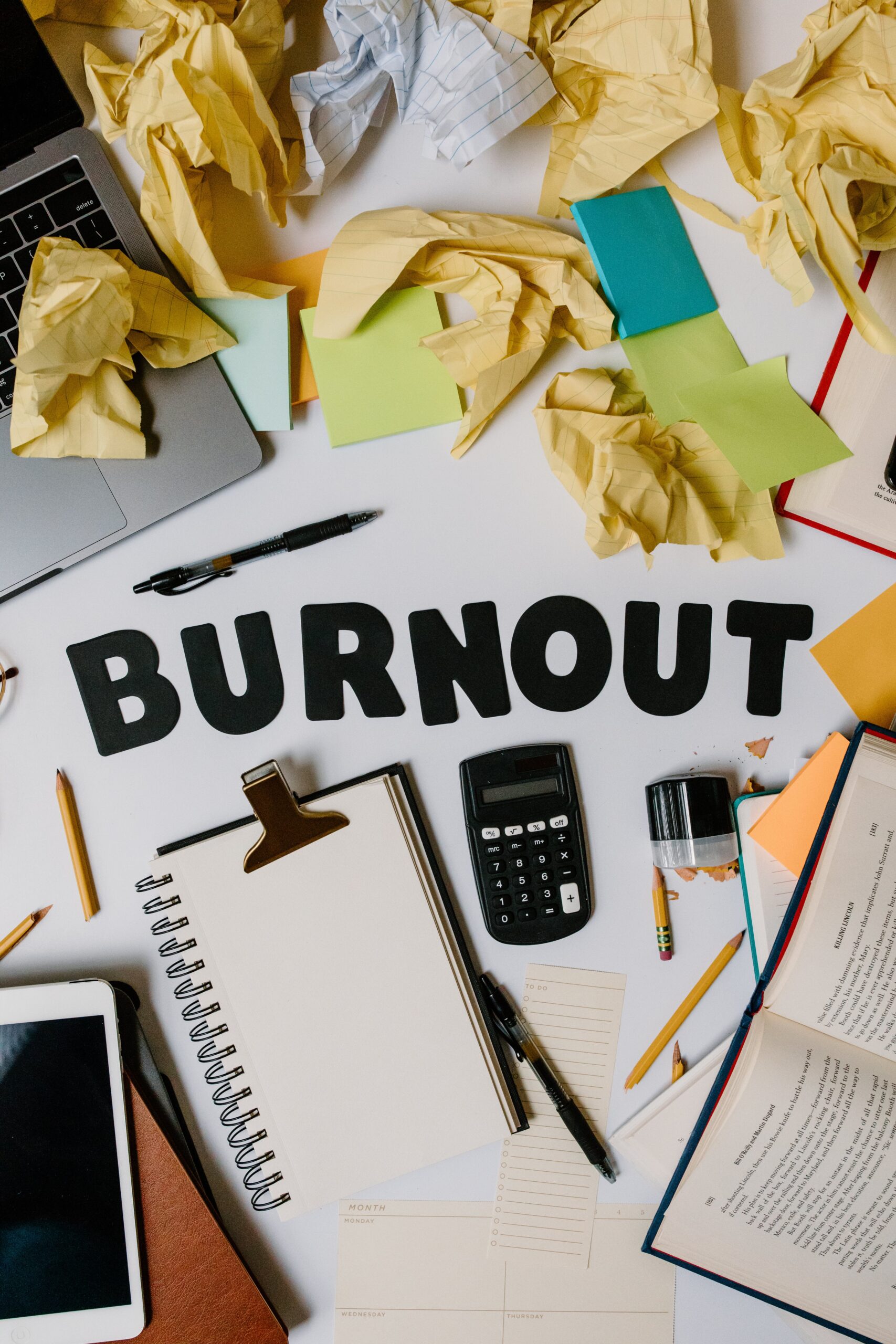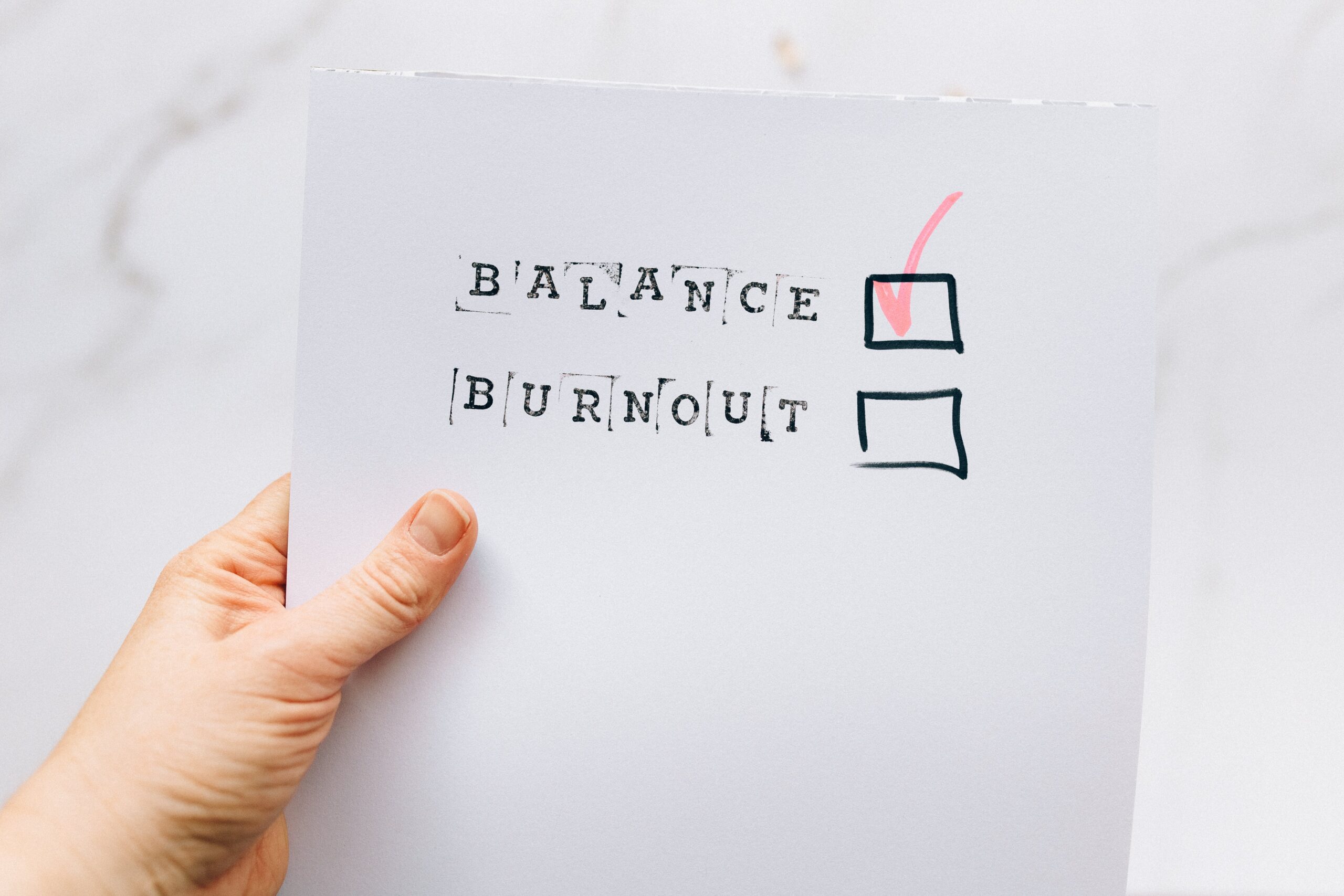For most people, our jobs play a significant role in our lives. In addition to earning a living and forming lifelong friendships, we spend a large portion of our time at work. Having a rewarding career can significantly improve our mental and general well-being. But occasionally, sweat can cause stress and anxiety, and life might become too much to handle. Tight deadlines and frequent travel at work, as well as other concerns like health issues, interpersonal relationships, or difficult situations, may be to blame for this. It’s important to remember that those with mental health issues who are nonetheless able to work make a substantial economic contribution. As a result, it’s critical to safeguard employees’ mental health at work by attending to both those who are at risk and those who currently have mental health issues. It is essential to encourage appropriate mental health practices and management in the workplace because being in a toxic work environment can be harmful to our mental health. Studies indicate that businesses with a strong focus on mental health have greater production levels.
It should be no surprise that office burnout is rising in today’s fast-paced, cutthroat economic world. High performance is demanded of employees despite growing workloads, conflicting demands, and escalating deadlines. Employee burnout may result from this ongoing strain on their mental, emotional, and physical health. You can be approaching burnout if constant stress leaves you feeling hopeless, demoralized, and worn out. Find out what you can do to get your equilibrium back and experience optimism and hope once more.
What is Office Burnout?
Employees who have been highly engaged for an extended period but lack the organizational support and personal skills to preserve their well-being are said to be burned out. Burnout is a dangerous infection affecting individuals and organizations, especially the most dedicated workers. Burnout is a condition of extreme physical, mental, and emotional tiredness brought on by extended periods of high stress. It happens when you feel emotionally spent, overburdened, and unable to keep up with demands. You start to lose the interest and drive that first prompted you to accept a particular role as the stress mounts. Burnout lowers output, depletes your energy, and makes you feel more and more hopeless, cynical, and bitter. You can eventually feel as though you are at your breaking point.
In general, burnout is felt as emotional tiredness or depersonalization. It is defined as a rupture between a person’s identity and their responsibilities. Burnt-out employees cause low output, missed work, decreased profitability, a loss of talent, and even harm the company’s reputation. A unique kind of work-related stress known as “job burnout” is characterized by emotional or physical tiredness, a diminished sense of accomplishment, and a loss of sense of self. “Burnout” is not a term used in medicine. Specific experts believe that other illnesses, such as depression, cause burnout. Scholars note that human characteristics, including character qualities and family dynamics, affect who becomes burned out at work.
Burnout harms all facets of life, including relationships, employment, and home life. Long-term physical changes brought on by burnout also increase your susceptibility to infections like the flu and colds. Burnout must be addressed immediately due to its numerous repercussions. The process of burnout is gradual. Although it doesn’t happen immediately, it can sneak up on you. At first, the symptoms are mild, but they get worse over time. Consider the preliminary symptoms as warning signs that require attention. A severe breakdown can be avoided if you pay attention and take proactive steps to manage your stress. You will eventually run out of energy if you ignore them.
Signs of Burnout
While everyone experiences burnout differently, it can impact physical, mental, and emotional well-being. There are three stages to burnout: low, moderate, and high risk. Employees are still working during the low-risk period. Stress is present, but it’s manageable. While they still exhibit high levels of manageable stress, employees in the moderate-risk phase are nonetheless highly engaged. They could struggle to concentrate on work-related tasks because of this stress. At the high-risk stage, tension gets out of control. Engagement thus decreases. The three common symptoms of burnout you should watch out for are:
1. Fatigue
One of the main signs of burnout is fatigue, which impacts every aspect of your life. You may notice that even small chores take longer to finish, or you want to sleep all the time. Profound physical, mental, and emotional exhaustion are all parts of fatigue, which impairs a person’s capacity to function well and feel good about their work. This can be brought on by the demands of a 24/7 work environment, strict time limits, or simply having too much work to accomplish, especially if you don’t enjoy your work, have little control over it, or lack the necessary abilities to finish it.
2. Depersonalization
Depersonalization, or cynicism, is a degradation of engagement. Essentially, it’s a means of psychologically separating yourself from your job. You experience feelings of detachment, negativity, and even callousness from your assignments, projects, coworkers, clients, and other partners, as opposed to investment. Work overload can lead to cynicism, but it’s also more likely to happen when there’s a lot of conflict, injustice, and a lack of involvement in decision-making. A persistent sense of cynicism indicates that you are no longer connected to, enjoying, or proud of your profession.
3. Inefficacy
Feelings of ineptitude and a deficiency in accomplishment and productivity are called inefficacy. This burnout symptom makes people feel their abilities are waning and fears they won’t be able to complete activities or succeed in circumstances. Since people cannot function at their best when exhausted and have lost their connection to their work, it frequently develops in tandem with cynicism and tiredness. However, inefficacy can also be the beginning of burnout if you need the tools and support you need to perform your job correctly, such as enough time, knowledge, autonomy, and positive connections with the people whose participation you need to succeed. This component can also be activated by the need for more relevant feedback and appreciation, which makes you question the caliber of your job and feel underappreciated.
Factors contributing to Workplace Burnout
In order to break your own burnout pattern, it’s critical to identify the symptoms, investigate the underlying causes, and develop preventive measures to control the stress that can lead to burnout. The most common reasons for burnout are listed here, along with some suggestions for addressing each.
1. Indeterminate Task Requirements
It is more difficult for employees to feel confident, love their work, and think they are doing a good job when unsure how to achieve it. Employees are more likely to experience burnout if the job description needs to be appropriately communicated, if the requirements are challenging to understand and change frequently, or if there are other unclear expectations.
2. Unachievable Standards
There are instances when doing a task as instructed is just not feasible. Doing a job successfully is only possible if the tasks assigned to you take longer than the time allotted to finish them. Employees who put in much effort but never feel like they’ve achieved their goals are also more likely to experience burnout.
3. More Stressful Times Without “Down” Times
There are “crunch times” in many professions and businesses where employees have to put in more hours and bear a heavier workload for a while. People may feel more energized as a result, provided the extra work is acknowledged, fairly rewarded, and kept to a minimum. When “crunch time” happens all year round and employees have no time to recoup, it becomes an issue.
4. Serious Impacts for Failure
Errors are a natural part of being human. But when a mistake has serious repercussions, such as the possibility of legal action, it makes work much more stressful overall and increases the risk of burnout. Because of the possible implications, those in the legal or medical fields frequently experience more excellent rates of burnout.
5. Lack of Personal Control
Your well-being may suffer if you believe you are not in control of your life, have insufficient access to resources, or have no voice in decisions that affect your career. When someone can think creatively about what needs to be done and how to solve difficulties as they arise, they usually feel enthusiastic about what they’re doing. In general, employees with a sense of limitation and lack of autonomy over their work environment and everyday choices are more likely to experience burnout.
6. The Lack of Appreciation
You may believe that the effort and time you put into your work are only worth the rewards if your job’s intrinsic and extrinsic rewards match up. It’s challenging to put in much effort and never receive praise for your achievements. Awards, public acclaim, bonuses, and other signs of gratitude and acknowledgment for achievements can significantly aid a positive work environment. When there are little rewards, burnout is possible.
7. Poor Interaction
Some of these issues, such as unclear job requirements or inadequate recognition, can be brought on by or made worse by poor communication inside the organization. An employee may feel less in control of their life if they are unable to effectively discuss a matter with a supervisor or other authority figure.
8. Inadequate Compensation
Specific jobs are inherently demanding, and you have to learn to live with it if the money is good enough. But when demands are high and income is low, employees may feel they need to be paid more to handle the situation. And the chance of burnout increases.
9. Ineffective Leadership
Leadership inside the company has a significant impact on whether burnout is prevented or exacerbated. For instance, employees may feel respected, safe, supported during tough times, acknowledged for their accomplishments, etc., depending on the leadership. Alternatively, people may experience feelings of being undervalued, ignored, unfairly treated, powerless over their actions, anxious about their roles, unclear about the demands of their employment, etc. An employee may be at risk for burnout due to various factors, many of which can be influenced by poor corporate leadership.
10. Mismatch Values
If you have a great value for something your employer does not, you may find it harder to stay motivated to work hard and endure. Individuals and organizations often have deeply established ideals and objectives. You should consider carefully how important it is to align your values with the organization’s values while evaluating this aspect of burnout.
Strategies to Overcome Burnout
Ignoring the warning signs of imminent burnout or realizing you’ve already reached your breaking point won’t make it any easier to fight through the tiredness and carry on as you have, as it will only damage your physical and emotional health. It’s time to take a step back and reverse course by finding out how to support yourself in overcoming burnout and experiencing good health and positivity. Here are some strategies for overcoming workplace burnout so you may get your enthusiasm and self-assurance back.
1. Identify the Indicators
Essential signs of burnout include difficulty maintaining relationships and being present with loved ones, a loss of pride in your work, difficulty focusing and forgetting things, irritation and frustration with coworkers, unexplained muscle tension, pain, exhaustion, and insomnia. Burnout frequently has far-reaching effects on one’s ability to perform at work, engage in hobbies, spend time with family, or unwind outside work. Additionally, it may increase the risk of health problems like depression, type 2 diabetes, heart disease, and suicide. Burnout usually only grows worse; therefore, it’s imperative to handle it.
2. Take care of your body first.
Though it sounds cliche, look after yourself. When was the last time you didn’t spend the night binge-watching Netflix or ate lunch while ignoring your computer? After work, how much wine do you drink? When did you most recently work out? Decide to replace screen time with sleep, avoid fast food, and resume regular exercise as part of your routine.
3. Talk openly and truthfully with your boss.
Discuss a plan of action with your boss if you feel overworked or stressed out at work. To help you regain interest at work, they can assist you with securing a new role or duties.
4. Show compassion.
Researchers noted that whereas most research has been on strategies to assist companies in lowering employee burnout, some focus on what individuals can do for themselves. Although situations that lead to burnout ultimately rest with employers, workers who cannot leave and are not receiving support can nevertheless take care of themselves. Whether burnout is acute or persistent, it can be lessened with little, conscious acts of compassion toward oneself and others. If tiredness is the main factor contributing to your burnout, try scheduling time for self-care activities like making a meal. One study found that even five minutes a day of meditation could help some people feel less burned out.
5. Reboot and communicate
Taking breaks for self-care has proven crucial in coping with burnout. Research indicates that those who see their jobs as a calling rather than “just a paycheck” are more likely to experience burnout. Some employees have discovered that journaling and setting aside time daily to practice appreciation can help refuel the mind and soul. Others have found catharsis through attending expert workshops and discussing their struggles with friends, family, and coworkers on social media.
6. Modify your job schedule and surroundings.
Your everyday work schedule may have an impact on burnout. You can change your routine to bring fresh challenges and enthusiasm to your work. Consider altering your work schedule to work earlier or later than the standard nine-to-five weekday, taking a different route to work, or scheduling a daily coffee break that permits you to stroll to a nearby coffee shop. Employees can now do a range of desk jobs from locations outside of an office setting, thanks to technological improvements. To test out a new workspace, inquire if your manager will allow you to work from home twice or thrice a week.
7. Reduce your workload.
The burden of obligations most employees had taken on also contributed to burnout. Most workers said that they should spend less time online and more time doing activities that would recharge them, such as swimming, gardening, and spending time with family. Additionally, assessing the number of duties an employee had accrued and starting to delegate the ones someone else could do. Consider eliminating routine tasks from your work life that you are no longer obligated to complete.
8. Maintain a balanced diet to boost your mental and physical health.
The meals you put into your body can have a big impact on your mood and level of energy during the day. Reduce sugar and processed carbohydrates. Although you might crave comfort meals like pasta, French fries, or sugary snacks, these high-carbohydrate items soon cause your mood and energy levels to plummet. Cut back on the amount of things you consume that can negatively impact your mood, such as foods high in chemicals or hormones, unhealthy fats, or caffeine. Boost your consumption of Omega-3 fatty acids to elevate your emotional state. Walnuts, seaweed, flaxseed, and fatty salmon are the most excellent sources.
9. Change the way you perceive your work.
The best method to deal with job burnout is to quit and find a job you love, regardless of whether your current job is fast-paced and exciting or dull and unfulfilling. For many of us, switching careers or jobs isn’t a realistic option; we’re content to have a job that pays the bills. Regardless of your circumstances, you may still take action to elevate your mental health. Try to add value to your work.
You can frequently concentrate on how your work benefits others or provides a much-needed good or service, even in some uninteresting occupations. Concentrate on the parts of your work that you find enjoyable, even if it’s only having lunch with your coworkers. Regaining control and a sense of purpose in your career might be achieved by altering your attitude towards it. Strive to live a balanced existence. Look, seek fulfillment and significance in other areas of your life, such as your family, friends, hobbies, or volunteer work, if you detest your job. Pay attention to the aspects of your life that make you happy.
10. Seek assistance
Whatever the intensity of your burnout, it’s critical to seek assistance. Although workplace cultures differ, businesses are legally required to provide some protection for employees experiencing burnout. Suppose your burnout has led to a medical diagnosis or not. In that case, any employer who issues you with a W-2 must provide accommodations. Communicating your distress to others is also essential. Thus, try to let a colleague know when you’re exhausted, overburdened, or at your wits’ end. Giving people a platform to express their difficulties can foster a more encouraging work environment and a more resilient workforce.
Conclusion
At some point in their careers, many professionals deal with burnout. This issue involves becoming disinterested and unmotivated at work, feeling stressed out by your job, and losing faith in your capacity to function well at work. Understanding the various stages of burnout will help you determine whether you’re going through this kind of stress and what you can do to get over it. Although experiencing burnout can be difficult, there are several strategies you can use to avoid this kind of stress.
Throughout their careers, professionals frequently experience burnout, which can have a variety of causes. The three main factors contributing to burnout are diminished accomplishment, emotional weariness, and depersonalization—essentially, being jaded and cynical about the people you should care about enough to serve. You may recognize burnout at work and take proactive measures to stop it from worsening by reviewing various strategies for overcoming it.



